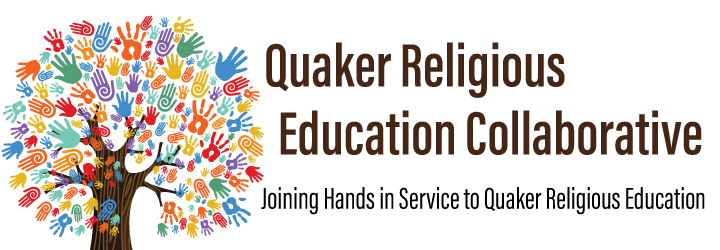Talking About Racial Injustice with Children
Published JUNE 5, 2020 on the Philadelphia Yearly Meeting website
Our children are watching, and listening, and learning. This is a deeply challenging time. Families are experiencing a global pandemic that has changed the shape of home and school life. There is economic uncertainty and hardship. Our children are watching and experiencing a nationwide response of fury and protest after the latest tragedies in centuries of Black lives brutally taken. For those of us who live with children and serve young people in our work, it is a moment to be present to them.
Children and youth in our families and communities have big questions and may be feeling worry, fear, sadness, or anger. They may be traumatized seeing the images and hearing the stories told by the media, and their own conscious and unconscious experiences of racism. Young people will look to adults in their lives — parents, grandparents, teachers, caregivers, adult presences in their meeting community — for comfort and to help make sense of what they see, hear, and feel. As adults, we may seek additional information and tools to respond to their questions and behavior in difficult times.
Each family makes choices about how to talk with their children and what to share. Conversations can be shaped by what’s developmentally appropriate for their age and what conversations you’ve already been having. We know from research that children notice and start making meaning about race by the age of 3. Families of Black children address lived realities of racism. For families raising white children, work for racial justice starts with having the conversations — silence is not an option. All of us who care about the children and young people in our lives can create space for questions and ongoing support from a place of love.
What is offered below includes resources to support conversation, learning, and community. Additional resources will be shared on the Families in Philadelphia Yearly Meeting Area group on Facebook. Please explore what is helpful to your family, share in your meeting, and pass along recommendations for what else you find that supports children, youth, and families.
This is an ongoing conversation. Wherever you’re starting or continuing from at the end of this week, let’s engage with our children and one another to do the work of anti-racism for the long haul and for profound and systemic change.
Melinda Wenner Bradley, Youth Religious Life Coordinator
Webinars and Conversations
“I [STILL] can’t breathe”: Supporting kids of color amid racialized violence.
A conversation with Dr. Allison Briscoe-Smith, a clinical child psychologist who specializes in trauma and issues of race. What conversations about policing, violence, safety, justice, and race should we be having with our children of color? Hosted by EmbraceRace. Their website has excellent resources for everyone.
“How do I make sure I’m not raising the next ‘Amy Cooper’?”
An EmbraceRace conversation with Dr. Jennifer Harvey, the author of Raising White Kids: Bringing Up Children in a Racially Unjust America, about what the parents of white children, in particular, can do to address racism.
Coming Together: Standing Up to Racism.
A CNN/Sesame Street Town Hall for Kids and Families.
Friends from Sesame Street, Atlanta Mayor Keisha Lance Bottoms, and CNN hosts Van Jones and Erica Hill take questions and talk to kids about racism, the recent nationwide protests, embracing diversity and making change.
Kojo For Kids: Jason Reynolds Talks About Racism And The Protests
The interview includes Q&A between the guest, author Jason Reynolds, host Kojo Nnamdi, and middle and high school-age people who called in to the show. He answers them with deep care, humor, and candor.
A Word on Protests, for Young Children
An educator shared this short film with students of color her Kindergarten class on YouTube. (shared with permission)
Books and Websites
Something Happened in Our Town: A Child’s Story About Racial Injustice
The book follows a white family and a black family as they discuss a police shooting of a black man. The story aims to answer children’s questions about such traumatic events, and to help children identify and counter racial injustice in their own lives. The book includes many resources for parents and educators including child-friendly definitions, sample dialogues, and discussion guides.
Not My Idea: A Book About Whiteness
For white-identifying parents raising white children, this is an excellent book to explore together. It is a FREE download from Dottir Press until Juneteenth (June 19). An honest explanation for white children about the state of race in America today.
The Conscious Kid
is creating Parenting and Education Resources through a Critical Race Lens: follow them on Instagram and consider signing up for their Patreon for books lists and resources with a minimal monthly donation that goes to supporting their work. Every person on their team is a parent of color. They bring decades of experience to this work, as PhD candidates in Education, HBCU Professors, critical race researchers, practitioners, and people with deep lived experience.
Anti-Racism Resources for all ages
A Project by the Augusta Baker Chair, Dr. Nicole A. Cooke, at The University of South Carolina.
Talking About Race
The National Museum of African American History & Culture (part of the Smithsonian) designed this online portal to resources to help individuals, families, and communities talk about racism, racial identity and the way these forces shape every aspect of society.











